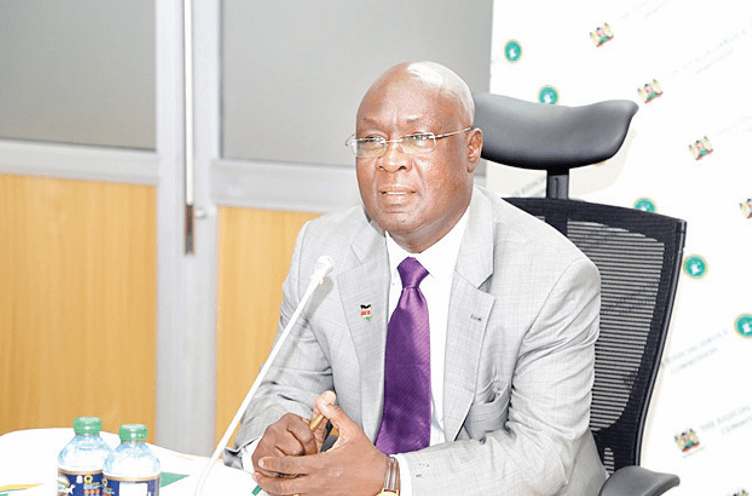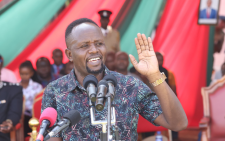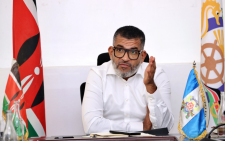Tale of bald-headed men’s tussle for comb in land row

A judge in Busia has caused mirth in his court by comparing the case of three men and a pastor fighting over a parcel of land grabbed from a public school to that of two bald-headed men fighting over a comb.
In a rare judgment that left both the plaintiffs and the respondent in fits of laughter, the judge went further and gave the analogy of carnivores brawling over dead prey as vultures hovered over.
High Court judge, Justice Boaz Olao, told the three complainants and the pastor that at the end of the day, it is the vultures that will take off with the prey.
Justice Olao handed the disputed land back to the government and told the complainants and their accusers to learn from the analogy.
At the centre of the legal drama were three plaintiffs: Fredrick Barasa Ouma, Silvester John Omala and Tuberius Odhiambo Malova.
They were acting on behalf of the Abachonga community. Their contention was straightforward yet complex: they wanted the board of management of the Free Pentecostal Fellowship in Kenya and Pastor Joseph Ogesa Wafula evicted from a piece of land in Bunyala.
Their claim hinged on the assertion that the land, No. Bunyala/Mudembi/1859, belonged to the community and had been preserved for Bujuanga Nursery School.
Despite the intense legal wrangling, Justice Olao remarked that the true owner of the land must have been observing the situation with amusement.
Comic relief
“While the parties herein were busy brawling, huffing, punching, kicking, and tearing at each other over the title deed of the land … the real owner thereof and who is the Principal Secretary, Treasury, on behalf of the Bujuanga Nursery School, must have been watching this comic relief with a lot of amusement,” the judge said.
“I must also confess that I enjoyed the drama as the litigants fought over nothing.”
He referred to National Geographic wildlife videos in which lions and other carnivores tear at each other after a successful hunt as vultures circle above watching.
“Then at the right time, they pounce and fly away with the lions’ meal. I think an appropriate name for this case, if I was to coin one, would be ‘The Case of Much Ado About Nothing’,” the judge added.
This colourful comparison emphasised the seeming triviality of the argument compared with the straightforward nature of the land’s ownership, which was revealed to be less complex than the legal battle suggested.
The three plaintiffs had sued claiming that the land belongs to the local community and during adjudication on October 2, 1985, it was specifically reserved for the community.
Its registration on July 24, 2014, under the Treasury PS, was meant to uphold the reservation for the Abachonga community.
“Pastor Ogesa, with or without the blessing of the board of management of [the church] and without any right, operates an academic institution under the name and style Bujuanga Light Academy on the suit land yet they have no evidence, documentary or otherwise, to warrant their continued occupation,” they argued. But Pastor Ogesa and the church contended otherwise. They acknowledged that the land was registered in the Principal Secretary’s name but denied that it was intended for community use as the plaintiffs claimed.
They argued that the church had been the actual beneficial owner of the land since 1965.
Pastor Ogesa also challenged the plaintiffs’ authority to represent the Abachonga community and questioned their motives.
The church had significantly developed the land, building a school and a church. These developments raised further questions about the plaintiffs’ claims and their motivations for seeking to evict the pastor.
“The plaintiffs are not representing any community but their intention is to grab the church land so as to sell it,” Ogesa stated.
“The community is actually happy with the [church’s] projects on the suit land and the plaintiffs have not adduced any documentary evidence to support their claim to the suit land and their suit should be dismissed with costs.”
Justice Olao’s judgment emphasised the futility of the plaintiffs’ claims.
He reviewed the land’s ‘green card’ and noted that it was first registered under the Busia County Council on October 2, 1985, with no evidence suggesting it was held in trust for the Abachonga community.
Since July 24, 2014, the land has been registered under the National Treasury PS for use as Bujuanga Nursery School, not for any other entity or community.
Claim ownership
This registration did not align with the plaintiff’s assertion that the land was reserved for the Abachonga community.
“There is no evidence that the suit land was registered in the name of the said Busia County Council to hold in trust for the Abachonga community or for any other institution or community for that matter,” the judge stated.
Justice Olao found it perplexing that both parties claimed ownership of the land when the evidence indicated otherwise.
“It is not clear, therefore, why the plaintiffs have pleaded on their plaint that the ‘Abachonga community is the bona fide claimer/owner of all this parcel of land known as Bunyala/Mudembi/1859,” Justice Olao noted.
“Neither is it clear why the defendants have also pleaded in their defence ‘that the [church] is the bona fide beneficial owner of the same property’.”
The judge’s verdict was unambiguous: both parties had failed to substantiate their claims.
This registration did not align with the plaintiffs’ assertion that the land was reserved for the Abachonga community.
Judge Olao found it perplexing that both parties claimed ownership of the land when the evidence indicated otherwise.
The judge added that “in view of the un-controverted contents of the green card to the suit land, it is difficult to see how either the plaintiffs or the defendants can lay any claim to the suit land”.
“Indeed if the defendants had any title to the suit land, and which has not been proved, that title was surrendered to the Busia County government as is clear from the letter dated October 23, 2020,” the judge stated.
If the defendants had an original title deed to the land that they later surrendered to the Busia County government, he added, it could only mean that they relinquished whatever interests they had in the land back on October 23, 2020.
The judge also stated that from the evidence presented in court, the Abachonga community has never been the owner of the land and so it could not have donated what it has never owned.
Principal Secretary
Justice Olao also held that a letter dated August 13, 2020, addressed to the land registrar in Busia, and produced in court as evidence by the petitioners, shows that the land is the property of the Treasury Principal Secretary and is held on behalf of Bujuanga Nursery School.
“It is not the property of the plaintiffs or the defendants. It is not, as pleaded by the plaintiffs on their plaint, held on behalf of the Abachonga community, who is a donor.”
In his ruling, the judge said that as admitted by the defendants, they were running a school on the land in the name of Bujuanga Light Academy, which cannot be the subject of litigation between the plaintiffs and the defendants.
“It can only be an issue between the defendant and the Principal Secretary to the National Treasury of Kenya as [the] holder of the title to the suit land on behalf of Bujuanga Nursery School,” Justice Olao said.
The judge also held that the plaintiffs were essentially “busybodies” regarding the ownership of the land.
“They have no locus standi to file any suit seeking orders to evict the defendants from the suit land. If the plaintiffs have always occupied the suit land, that in itself does not confer any title or proprietary interest in the suit land,” Justice Olao ruled.
He said evidence showed that the plaintiffs had been attempting to acquire the land title but their efforts were thwarted when the document was issued to the PS on July 24, 2014.
Judge Olao dismissed the plaintiffs’ suit. He ordered them to pay the defendants’ costs, highlighting the baseless nature of their attempt to evict the church from the land.












